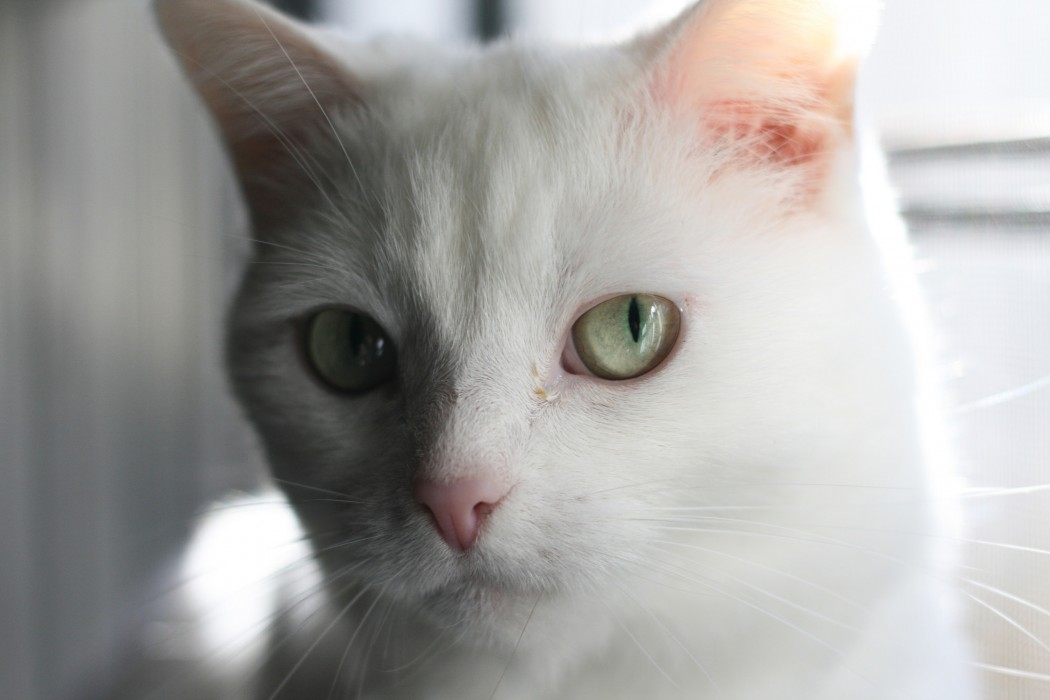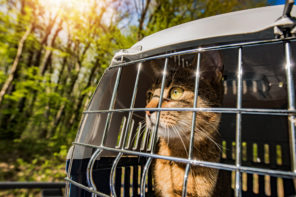When we gear up to go out for a day hike, we prepare by filling up our water bottles, grabbing a snack and slathering on the sunscreen. Turns out, our furry friends may need all of the above too.
According to veterinarian Dr. Ruth MacPete, even the hairiest of our cats can be susceptible to sunburn — but most especially hairless breeds and those with fine or light-colored hair. MacPete writes on Pet Health Network that “areas like the ears, nose, lips, eyelids and belly often have little to no hair on them and thus are very susceptible to sun damage.”
Yes — that means braving dangerous territory (belly rubs) to protect your little guy from skin cancer.

Gandalf surveys the world of possibilities before him at New Farm Park in Australia. (Photo: Marty Ghen)
MacPete suggests avoiding time outdoors between 11 a.m. to 3 p.m., so an early morning or late afternoon hike is best. Otherwise, gear up with protective clothing (like our pal Omar wears!) or a special sunscreen (as donned by the fair-skinned Gandalf).
The catch: Many common ingredients in human sunscreen are toxic to cats, including those with zinc oxide. MacPete lists octyl xalicylate, homosalate and ethylhexyl salicylate as also being toxic to cats. According to the Found Animals Foundation, titanium oxide is one ingredient that can be used on the tip of the ears — but nowhere where the cat can reach while grooming, as ingesting this ingredient can be toxic.
Because sunscreens aren’t tested on pets by the FDA, it can be tricky to find the right brand. That’s why it’s critical to reach out to your veterinarian to find the best product for your cat. In some cases, sunscreens for sensitive skin and sunscreens for infants can be safe to use on cats, so be sure to go over these options with your veterinarian. One brand to ask them about is Vetbasix, a sunscreen developed especially for pets that claims to be safe for cats.

Even sunny window time can be risky for hairless pets. (Photo: Shannon Badiee/Flickr)
If you find a brand that works for your cat, it’s best to try a little at a time and make sure to keep the sunscreen out of his or her eyes and, if possible, out of reach of where they groom themselves.
Just like with humans, cat sunburns look like red and irritated patches, and your kitty may flinch to the touch. In extreme cases, sunburns can cause hair loss. If you suspect your cat has a sunburn, a visit to the vet can get you the right topical cream for treatment, or antibiotics if it’s progressed to an infection.
If your cat has fine hair, spends a lot of time in the sun or is fair-furred, we highly recommend starting your outdoor adventures out the right way. Stop by the vet on your way to buy that harness and make sure that you are well prepared to prevent sunburn. Hike in the morning or evening, or hike in shady areas when the sun at is peak strength. Trust us, your adventure cat will thank you!




